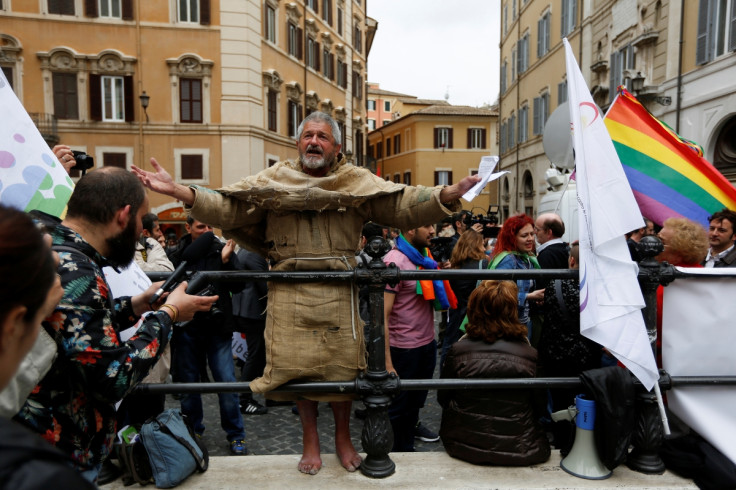Italian lawmakers back same-sex unions in vote of confidence for PM Matteo Renzi

The Italian parliament has finally voted to back same-sex civil unions following years of debate and opposition from conservative members. In a huge vote of confidence for centre-left prime minister, Matteo Renzi, Italy has become the last remaining major western democracy to legally recognise gay partnerships.
The new law had been resisted by staunch conservative politicians and the Catholic Church, but ministers voted 369-193 in favour of the proposals, meaning the civil unions' bill will become law in the landmark vote on Wednesday, 11 May.
In 2015 the European Court of Human Rights (ECHR) ruled that Italy had violated human rights by not offering enough legal protection to same-sex couples and in February 2016, the Italian Senate approved the civil unions bill.
The bill is seen by some as not going far enough with gay people still not permitted to adopt a partner's biological children and a duty of fidelity for gay couples was dropped, after opposing politicians raised concerns that the civil union would be too close to marriage.
There will be no ban on adoption but family judges will decide on a case-by-case basis. Couples will also get the right to take each other's surnames and receive a dead partner's pension.
Democratic Party (PD) Senator Monica Cirinna, called the compromise version a "hollow victory" and only "a first step" according to the BBC. "This is a very important measure, but I am also thinking of the children of so many friends," referring to the gay adoption measures.
La Fontana di Trevi si illumina con l'arcobaleno per festeggiare l'attesa legge #unionicivili pic.twitter.com/N0mfiMk1fz
— elisabetta margonari (@ikoeli) May 11, 2016
The head of the Italian Arcigay campaign group, Gabriele Piazzoni, said: "The text contains the recognition and protection many gays and lesbians have been waiting for all their lives," he said, commenting that the concessions "leave a bitter taste".
Some opposition ministers objected to allowing gay adoption because of fears that it could encourage surrogacy. Archbishop Michele Pennisi, a member of the Italian Bishops' Conference, told La Repubblica newspaper: "There is a large part of the country that did not want this law passed".
He added: "It seems to me that behind the law is a culture that is specifically contrary to the natural family."
In a Facebook post, Renzi spoke of a party colleague and gay rights campaigner Alessia Ballini, who died of cancer aged 41. "In these crucial hours I keep close to my heart the thought and memory of Alessia," Renzi said. "And that's enough for me.
"Because laws are made for people, not for ideologies. For those who love, not for those who make declarations. Let's write another important page for the Italy that we want."
© Copyright IBTimes 2024. All rights reserved.






